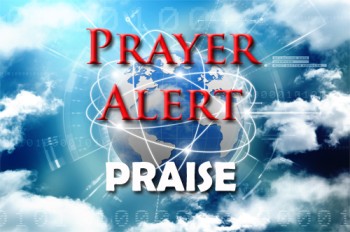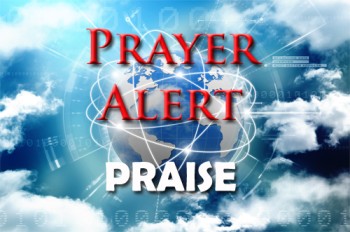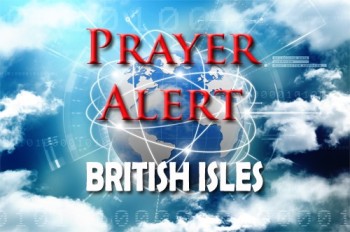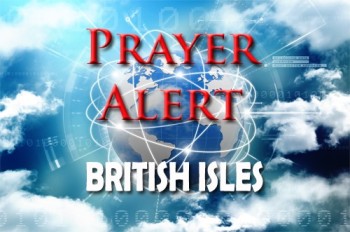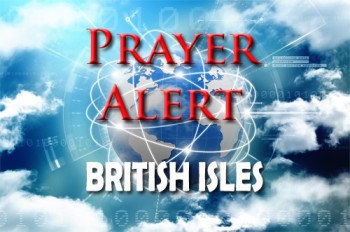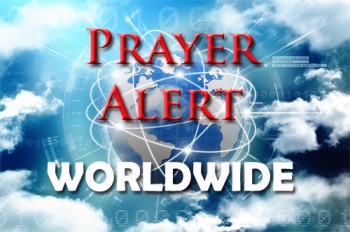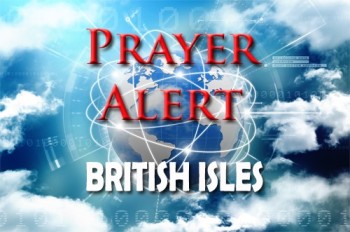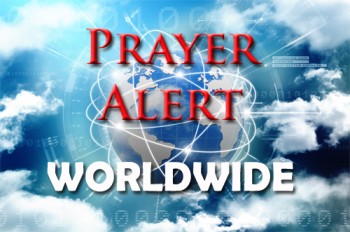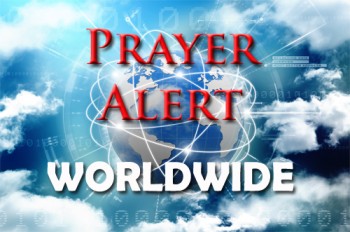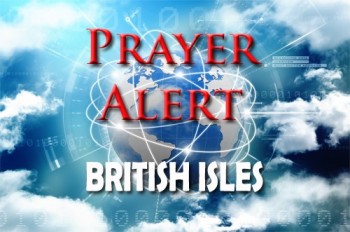Displaying items by tag: church leaders
Argentine pastors’ personal experiences working with Pope Francis
The death of Pope Francis has sparked reflection among church leaders in Argentina who knew him personally. Evangelical pastor Alejandro Rodríguez described him as 'a pastor with the smell of sheep’, deeply connected with the people. Legendary evangelist Luis Palau considered him a friend, despite theological differences, praising Francis’s humility and respect for the Bible. During his time as archbishop and pope, Francis built bridges with Evangelical leaders, supporting Bible engagement and championing unity. He collaborated on projects like the Community Bible Experience and encouraged Catholics to read Scripture. His personal gestures, such as serving others and breaking protocol, left a lasting impression. While not all Evangelicals agreed with his views or reforms, many respected his sincerity, humility, and service to the poor. Many church leaders have expressed sorrow and praised his legacy of service and openness to inter-church dialogue. His life invites reflection on the importance of unity without compromise and the shared mission of lifting high the name of Jesus. See
Russian pastors risk prison to oppose war in Ukraine
A quiet yet courageous resistance is growing among evangelical leaders in Russia who are risking their freedom to oppose the war in Ukraine. Bishop Albert Ratkin, pastor of Word of Life Church near Moscow, has been labelled a 'foreign agent' by the Kremlin and has had his church raided. Despite the risks, Ratkin continues to speak publicly against the war, declaring that Christians must not support violence. Other pastors, such as Nikolay Romanyuk and Yuri Sipko, have faced imprisonment, persecution, or have fled the country entirely. Romanyuk is currently facing prison for urging Christians not to enlist, while Sipko fled to Germany after authorities called his sermons 'enemy propaganda’. Pastor Andre Furmanov helps church members obtain military exemptions but avoids public protests to avoid jeopardizing lives. These men represent a small group of faithful believers whose conscience, shaped by the gospel, compels them to stand for peace and truth. Despite repression and persecution, they remain committed to proclaiming Christ’s message of love and justice.
Former archbishop joins climate call to PM
Rowan Williams, former Archbishop of Canterbury, has joined over two dozen faith leaders urging Keir Starmer to back the Climate and Nature (CAN) Bill. The bill, set for a parliamentary vote on 24 January, seeks stronger environmental protections and accelerated carbon reduction targets. Over 200 MPs have already expressed support. In an open letter organised by the campaign group Zero Hour, the faith leaders appealed to the government to act responsibly, citing the 'golden rule' shared by all faiths: treat others as you wish to be treated. They emphasised Britain’s responsibility to address the global impacts of its actions. The letter described the CAN Bill as essential for improving lives in the UK and globally. It called on the Government to demonstrate leadership by integrating climate and nature action into its policies and setting an example for the world. The letter, delivered to Downing Street, urged seizing this moment as an opportunity for meaningful change.
Migrants ‘unjustly maligned’: church leaders speak out as Rwanda bill passed
The Archbishops of Canterbury and York, along with other church leaders, have voiced strong concerns regarding the recently passed Safety of Rwanda Bill. This legislation, aimed at deporting some asylum seekers to Rwanda, has met with considerable opposition. The church leaders criticised the bill for unfairly maligning migrants fleeing war, persecution, and violence for political purposes. In a joint statement, they highlighted the potential precedent this bill sets for the treatment of vulnerable individuals, including victims of modern slavery. They expressed disappointment in the rising hostility towards refugees and asylum seekers, whom they describe as being used as 'political footballs.' The UN has also urged the UK to reconsider this bill, especially after the tragic deaths on 23 April of five people attempting to cross the English Channel. Rishi Sunak defended the bill, citing the need for a deterrent against criminal exploitation of vulnerable migrants. See
One in 52 Blackpool children in care as poverty soars in north of England
The north of England faces a crisis in child welfare, with one in 52 children in Blackpool in care, highlighting the urgent need to address poverty-driven disparities. A report has revealed that nine in every thousand children in the north are in care, compared to six in the rest of England. The figures indicate that £25bn could have been saved if care entry rates had been equal across regions from 2019 to 2023. Child poverty emerges as the primary driver of these discrepancies. Dr Davara Bennett, lead author of the report, has stressed the necessity for policymakers to confront systemic inequalities and prioritise preventative measures over reactive spending. Emma Lewell-Buck, co-chair of the Child of the North all-party parliamentary group, has pointed to the detrimental impact of underinvestment in social services, advocating for improved support systems for vulnerable families. The call to action urges the Government to address these issues promptly to ensure a brighter future for children and families across the region.
Canada / Australia: sexual abuse and fraud in evangelical churches
The Meeting House church in Oakville, Canada has had ‘substantiated’ sexual abuse allegations against its former leader, Bruxy Cavey. In June, he was charged with one count of sexual abuse after an internal investigation. Then the church announced two further investigations, as more accusations of sexual abuse against him and former pastor Tim Day were submitted: see In Australia the Charities and Not-for-Profits Commission launched an investigation into the Hillsong megachurch in March after a former employee alleged financial malpractice, including using tax-free money for ‘large cash gifts’ to former Hillsong global leader Brian Houston and his family. See also
Church leaders call for renewable energy
The former Archbishop of Canterbury, Dr Rowan Williams, and 200+ church leaders sent an open letter to Boris Johnson and Rishi Sunak. They said a stronger commitment to renewable energy would help address the climate emergency and help people to weather the cost of living crisis. Letter signatories include fifty Anglican and Catholic bishops, including the lead environment bishops. Their call for financial and fiscal support for renewable energy and energy efficiency - solar and wind energy - was met in the spring statement, but retrofitting of homes and other buildings across the UK to reduce heating bills and decrease carbon emissions was not. They also proposed a windfall tax on fossil fuel companies to address the cost of living and no support for new oil and gas developments if we are to limit global heating to 1.5°C.
Church leadership: different levels of training
A renowned and well-established research institution found only 5% of pastors/priests in every worldwide Christian tradition have theological training with a recognised degree. 90% of pastors only have some kind of informal or non-formal theological education. Formal theological education has a clearly defined programme, curriculum, exams, degrees, and associated accreditation processes. The thousands of informal programmes have nothing similar; there are no guidelines, no standards, and no outcomes that could be globally accepted. Each one does what it considers best. Often the concepts and beliefs of the founders or leaders of each denomination or mission agency determine how the various training programmes are carried out. One teacher and missionary leader stated publicly that he had personally trained more than 15,000 pastors for ministry; each pastor received about six weeks of training, and were then ordained as pastors. He and his board believe that such training is sufficient.
South Sudan: churches write to leaders
The Archbishop of Canterbury, Pope Francis, and Church of Scotland moderator Jim Wallace have written to South Sudan's political leaders on the tenth anniversary of its independence. They said that the anniversary calls to mind past struggles and points with hope to the future, and that the nation is blessed with immense potential. They encouraged leaders to make even greater efforts to enable their people to enjoy the full fruits of independence. They also said, ‘When we wrote to you at Christmas, we prayed that you might experience greater trust among yourselves and be more generous in service to your people. Since then, we are glad to see some small progress. Sadly, your people continue to live in fear and uncertainty, and lack confidence that their nation can indeed deliver the “justice, liberty and prosperity” celebrated in your national anthem. Much more needs to be done to shape a nation that reflects God’s kingdom.’
Northern Ireland: church leaders plead for unity
Protestant and Catholic church leaders said the causes of the recent violence were complex and deep-rooted, and have appealed for politicians to provide a unified response to the recent ‘heart-breaking’ scenes of violence. In a joint open letter, they called on them to ‘renew their commitment to peace, reconciliation and the protection of the most vulnerable’. Almost ninety police officers have been injured in rioting in the past week. The leaders' plea is addressed to NI ministers, the British and Irish governments, and the EU. They called for the entire NI executive to approach the EU and UK government to deal with the Brexit fallout and the Irish Sea border, and for politicians to express their support for the police. Much good work on the ground has been undermined as tension has risen and confidence has plummeted.
